Politics
BRICS reserve currency banknote features the word ‘Nigeria’ written in Hausa, sparking criticism.
Published
6 months agoon
By
Ekwutos Blog
A mock-up of the upcoming BRICS currency was unveiled at the alliance’s summit in Kazan, Russia, with Russian President Vladimir Putin prominently displaying the ‘BRICS bill.’
This marks the first public presentation of the new currency, generating significant interest among member nations.
In his address, Putin acknowledged the ongoing dominance of the US dollar in global finance but criticized its use as a political weapon, arguing that such practices undermine trust in the currency.
At the summit, Putin also proposed the establishment of a BRICS-based grain exchange.
He emphasized that many BRICS countries are major producers of grain, vegetables, and oilseeds, and suggested that the exchange could facilitate fair pricing and enhance global food security.
‘A number of BRICS countries are among the world’s largest producers of grain, vegetables, and oilseeds.
‘We propose opening a BRICS grain exchange, which would facilitate the formation of fair and predictable price indicators for products and raw materials, taking into account their special role in ensuring food security.’
The initiative aims to leverage the agricultural strengths of BRICS nations to create a more balanced and transparent market for essential commodities.
Notably absent from the summit were Nigerian President Bola Ahmed Tinubu and Vice President Kashim Shettima, raising questions and tensions among Nigerians on social media regarding their absence.
Although neither leader was present, the Nigerian flag was featured in the new currency design, igniting debate among citizens.
Journalist David Hundeyin, @DavidHundeyin highlighted a contentious detail on X: the proposed BRICS reserve currency banknote features the word ‘Nigeria’ written in Hausa, sparking criticism.
Hundeyin remarked that this choice reflects a lack of representation for Nigeria’s official language and suggests that the current Tinubu administration may be sidelined from BRICS initiatives.
‘Nigeria, for some reason, is apparently skipping the ongoing 2024 BRICS summit entirely. Nobody is representing Nigeria in Kazan. Not the president, not the VP, not the foreign minister, nobody.
‘This is a huge statement for a summit that basically every consequential president in the Global South is attending in person’, Hundeyin said.
Responses from Nigerians on social media varied, with some, like Abubakar Buba, suggesting that BRICS might prefer native languages over English.
Others like Aganji Adeyemi, @Olasunkanmiiiii argued that using indigenous languages is essential for Nigeria’s identity and independence, with calls to replace English as the official language with Pidgin or Hausa to reflect the nation’s cultural diversity.


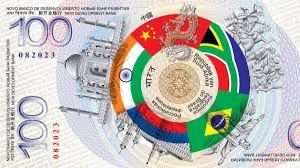
As discussions continue, the summit underscores both the aspirations and challenges facing the BRICS alliance as it seeks to strengthen its global influence.
You may like


NDLEA raids Lagos hotel, recovers N1.042billion illicit drug consignments …Intercepts over 2million pills of tramadol in Kano, Jigawa; another Saudi-bound cocaine in body cream; arrests 3 Ghanaian ladies for cross border trafficking


Group calls for minister’s sack over alleged act of tribalism, economic sabotage
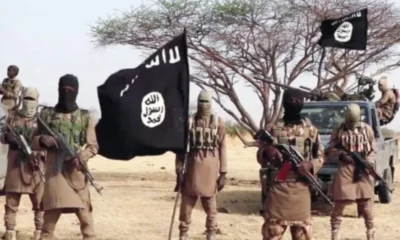

Suspected Boko Haram terrorists kill 10 vigilantes in Kwapre, Adamawa


PIA: Support independent regulatory institutions in oil and gas sector – Group to Tinubu
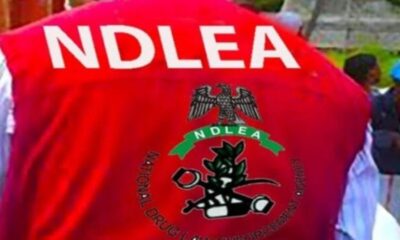

NDLEA arrests 60-year-old grandmother, major drug supplier in Kano


Enugu High Court Judge, Oluedo, faces NJC probe over alleged judicial misconduct
Politics
UK Tories consider replacing Kemi Badenoch as party leader after poor ratings
Published
7 hours agoon
April 27, 2025By
Ekwutos Blog
Six months after Kemi Badenoch was elected leader of the UK Conservative Party, internal discussions have already shifted toward the possibility of replacing her.
With local elections in England approaching, many Conservative MPs and officials are increasingly dissatisfied with Badenoch’s leadership and have expressed concerns that she is not the right person to lead the party into the next general election, scheduled for 2029.
According to more than two dozen sources who spoke to Bloomberg on the condition of anonymity, there is growing support within the party to replace Badenoch with Robert Jenrick, the right-wing shadow justice secretary.
The discontent comes amid low polling numbers for the Tories and the perception that Badenoch, who became leader on November 2, 2024,has failed to address key issues, leaving the party vulnerable to challenges from Nigel Farage’s Reform Party. Badenoch’s spokesperson declined to comment on the situation, while Jenrick’s spokesperson pointed to an interview in which he expressed support for Badenoch’s leadership, suggesting people should give her time.
The situation is expected to worsen with the upcoming local elections, where the Conservatives are predicted to lose a significant number of seats. The Tories’ performance in these elections is crucial, as they are seen as an early indicator of the party’s standing ahead of the general election. In the last local election in 2021, the Conservatives won nearly half the races, bolstered by then-Prime Minister Boris Johnson’s successful COVID-19 vaccine rollout. However, since then, the party’s popularity has plummeted, and they are now facing their worst-ever performance.
Political analysts predict a “total wipe-out” for the Conservatives in the upcoming elections, with Rob Ford, a professor of political science at the University of Manchester, calling it a “total and unmitigated disaster.” After briefly overtaking Labour in polls late last year, the Conservatives have fallen more than five percentage points behind both Labour and Reform, with the latter now emerging as a strong challenger on the right.
Politics
After meeting with Zelenskyy, Trump questions Putin’s willingness to stop Ukraine war
Published
8 hours agoon
April 27, 2025By
Ekwutos Blog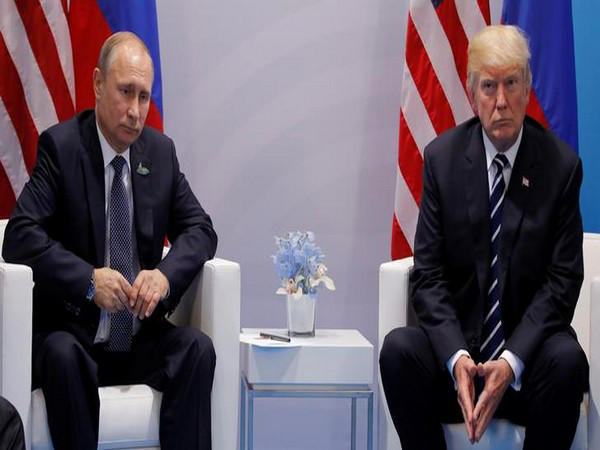
Washington, DC [US], April 27 (ANI): US President Donald Trump has questioned his Russian counterpart, Vladimir Putin’s willingness to stop the war and criticised recent missile strikes in Ukraine, CNN reported.
Trump said after his meeting with Ukrainian President Volodymyr Zelenskyy in the Vatican on the sidelines of Pope Francis’ funeral, on Saturday.
It was the first meeting between the two leaders since their meeting in the White House, when Zelenskyy faced criticism from Trump and Vice President JD Vance over what they saw as a lack of gratitude for American support.
In a post shared on his social media platform, Truth Social, as he was heading back to the US from Rome, Trump hinted at imposing sanctions against Moscow after Russia’s latest missile attack on Ukraine and questioned whether Putin wants to stop the war.
Donald Trump even criticised former US President Barack Obama and suggested that he “made it possible for Russia to steal Crimea from Ukraine without even a shot being fired.”
In a post shared on Truth Social on Saturday, Trump shared, “No matter what deal I make with respect to Russia/Ukraine, no matter how good it is, even if it’s the greatest deal ever made, The Failing New York Times will speak BADLY of it. Liddle’ Peter Baker, the very biased and untalented writer for The Times, followed his Editor’s demands and wrote that Ukraine should get back territory, including, I suppose, Crimea, and other ridiculous requests, in order to stop the killing that is worse than anything since World War II. Why doesn’t this lightweight reporter say that it was Obama who made it possible for Russia to steal Crimea from Ukraine without even a shot being fired. It was also Liddle’ Peter who wrote an absolutely fawning, yet terribly written Biography, on Obama. It was a JOKE! Did Baker ever criticize the Obama Crimea Giveaway? NO, not once, only TRUMP, and I’ve had nothing to do with this stupid war, other than early on, when I gave Ukraine Javelins, and Obama gave them sheets.”
“This is Sleepy Joe Biden’s War, not mine. It was a loser from day one, and should have never happened, and wouldn’t have happened if I were President at the time. I’m just trying to clean up the mess that was left to me by Obama and Biden, and what a mess it is. With all of that being said, there was no reason for Putin to be shooting missiles into civilian areas, cities and towns, over the last few days. It makes me think that maybe he doesn’t want to stop the war, he’s just tapping me along, and has to be dealt with differently, through “Banking” or “Secondary Sanctions?” Too many people are dying,” he added.
Trump and Zelenskyy spoke ahead of the funeral of Pope Francis. Describing his meeting with Trump as “good,” Zelenskyy said that talks focused on “full and unconditional ceasefire.” He expressed hope to see results on everything they discussed.
In a post on X, Zelenskyy said, “Good meeting. We discussed a lot one-on-one. Hoping for results on everything we covered. Protecting lives of our people. Full and unconditional ceasefire. Reliable and lasting peace that will prevent another war from breaking out. Very symbolic meeting that has potential to become historic, if we achieve joint results. Thank you POTUS.”
Trump and Zelenskyy had a “very productive” meeting in Rome, a White House official said – their first meeting since a tense meeting in the White House in February this year, Al Jazeera stated.
On Saturday, White House communications director Steven Cheung said, “President Trump and President Zelenskyy met privately today and had a very productive discussion. More details about the meeting will follow,” Al Jazeera reported.
In a post on X, Ukraine’s Minister of Foreign Affairs Andrii Sybiha stated, “No words are needed to describe the importance of this historic meeting. Two leaders working for peace in St. Peter’s Basilica.”
Politics
2027 Elections: El-Rufai meets Kwankwaso in Abuja
Published
9 hours agoon
April 27, 2025By
Ekwutos Blog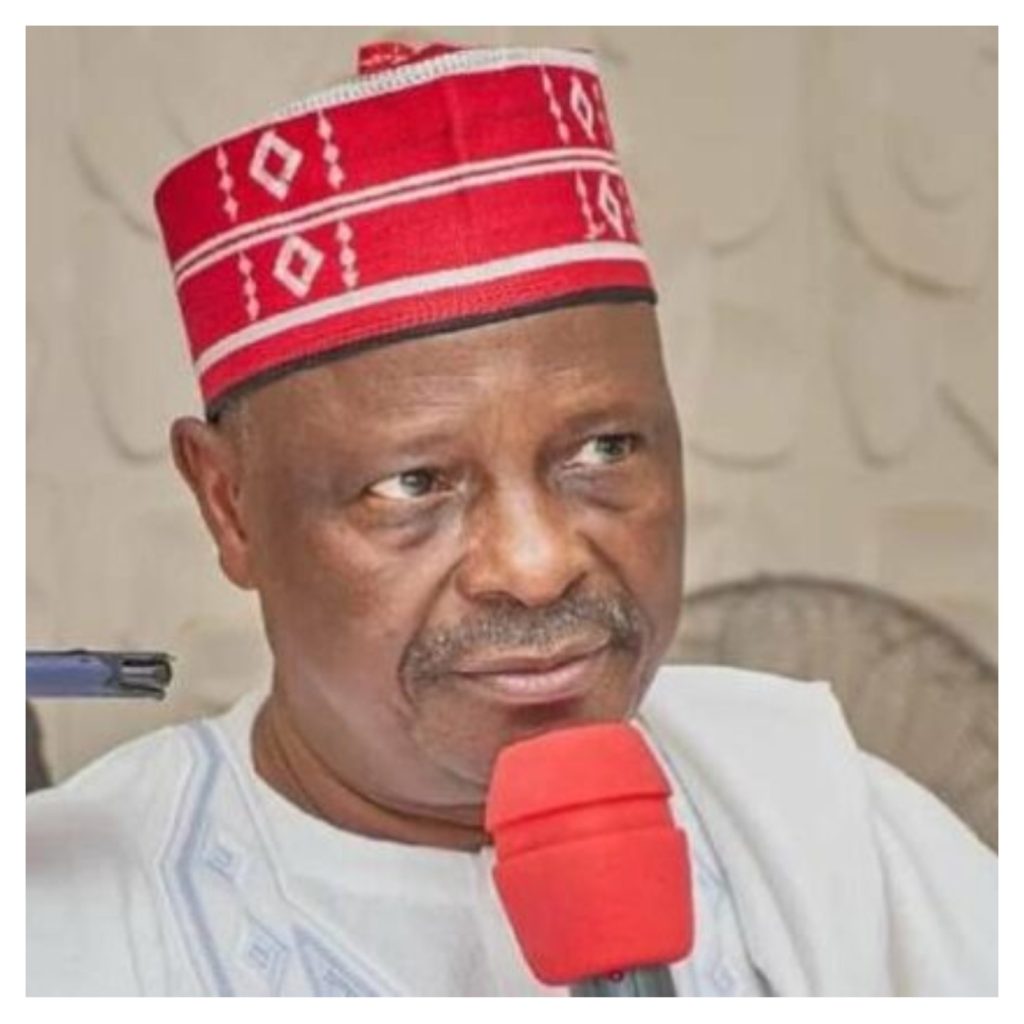
Former Kaduna State governor, Mallam Nasir El-Rufai, on Friday met with the national leader of the New Nigeria Peoples Party (NNPP), Senator Rabiu Musa Kwankwaso, in Abuja, fueling speculation about Kwankwaso’s possible return to the ruling All Progressives Congress (APC).
The two political heavyweights were seen together after Jumaat prayers at a mosque in the nation’s capital.
El-Rufai was accompanied by his eldest son, Hon. Bello El-Rufai, during the meeting, according to a report by The Nation.
The meeting comes against the backdrop of growing rumours that Kwankwaso has struck a deal with President Bola Ahmed Tinubu that could see him, along with his political followers, rejoin the APC.
Observers believe that Kwankwaso’s return could significantly boost Tinubu’s chances of securing re-election in the 2027 general elections.

NDLEA raids Lagos hotel, recovers N1.042billion illicit drug consignments …Intercepts over 2million pills of tramadol in Kano, Jigawa; another Saudi-bound cocaine in body cream; arrests 3 Ghanaian ladies for cross border trafficking

Group calls for minister’s sack over alleged act of tribalism, economic sabotage

Suspected Boko Haram terrorists kill 10 vigilantes in Kwapre, Adamawa
Trending

 Trending6 months ago
Trending6 months agoNYA demands release of ‘abducted’ Imo chairman, preaches good governance
- Business6 months ago
US court acquits Air Peace boss, slams Mayfield $4000 fine

 Politics6 months ago
Politics6 months agoMexico’s new president causes concern just weeks before the US elections
- Entertainment6 months ago
Bobrisky transferred from Immigration to FCID, spends night behind bars
- Entertainment6 months ago
Bobrisky falls ill in police custody, rushed to hospital

 Politics6 months ago
Politics6 months agoRussia bans imports of agro-products from Kazakhstan after refusal to join BRICS

 Politics6 months ago
Politics6 months agoPutin invites 20 world leaders
- Politics1 year ago
Nigerian Senate passes Bill seeking the establishment of the South East Development Commission.

